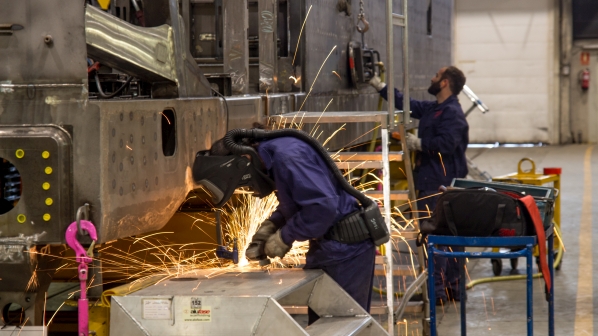The report found that EU policies address most of the current challenges facing the EU RSI. The group instead analysed the existing instruments to identify ways for the industry to make greater use of them and for the EU to produce additional measures while ensuring synergies with the policy measures in place.
Value added by the RSI in 2017 was approximately €15.2bn, around one third of the €49bn in revenue generated by the industry. The report found the sector has seen continual growth since 2011 and is considered a world leader with a continuous net trade balance, but growing competition is visible.
The European Parliament highlighted the strong global competition the EU RSI faces in 2016. It also stressed the strategic relevance of the EU RSI, along with innovation, and emphasised the challenges facing SMEs.
The working group is composed of 60 members, including member states, trade organisations or national associations, manufacturers, system manufacturers, innovation and technology clusters, and standardisation bodies.
Digitalisation
The report recommends that the EC, EU bodies and the industry proceed as quickly as possible with the development of ERTMS coordinated by the EU Agency for Railways (ERA) and steered by the Shift2Rail (S2R) programme. This will allow the EC to include ERTMS in the next version of the Control-Command and Signalling Technical Specification for Interoperability (CCS TSI), which is expected to be released in 2022.
It also recommends that the EC and member states build on the collaborative research-model set up within S2R, and proposes developing a rail research programme within the Horizon Europe Framework Programme 2021-2027. The EC and member states should also ensure that adequate instruments and regulatory frameworks are in place, including standardisation, to facilitate the deployment of the innovative technologies developed within the current S2R programme and its potential successor.
Fourth Railway Package
The report recommends that the member states, EC and ERA fully implement the Fourth Railway Package as soon as possible, while further reducing the remaining number of national technical and operational rules. The EC should also monitor the implementation of the Fourth Railway Package, to evaluate whether it is reducing the cost and time for granting vehicle authorisation and, if not, propose corrective actions.
Under the coordination of the EC, ERA and S2R, the report recommends breaking down the rail system into different modules with standardised interfaces, including carrying out work on the CCS system architecture based on common European operating principles.
The European standardisation organisations, member states, industry, EC and EU bodies should develop and implement a work plan to improve the convergence of European and international standards and convert EN standards into IEC/ISO standards.
Tendering
The industry and member states should promote recommendations by the Community of European Railway and Infrastructure Companies (CER), European Rail Infrastructure Managers (EIM) and The European Rail Supply Industry Association (Unife) to adopt the Most Economically Advantageous Tenders (Meat) principle for the procurement of rail products so that the life cycle costs can be taken into consideration.
Member states and the EC should promote the use of a strategic approach towards procurement for a wider uptake of quality criteria including environmental, social and innovation aspects. The EC should also support member states in their understanding and evaluation of abnormally low bids.
Member states and the EC should also reach agreement with the European Parliament to adopt the International Procurement Instrument and ensure that it is fit for purpose to achieve a more balanced and reciprocal economic relationship.
The report also recommends that the EC continues opening third country procurement markets through bilateral agreements and works on the accession of third countries to the World Trade Organisation (WTO) multilateral Government Procurement Agreement (GPA). It should also continue working with the WTO GPA parties on improving the GPA in order to eliminate discriminatory measures and extend its coverage among all Parties on the basis of mutual reciprocity.
The EC should also propose new rules and disciplines on subsidies, including for state-owned enterprises, at the WTO level to ensure fair competition; continue to protect and enforce Intellectual Property Rights (IPR) with third countries; and appoint a chief trade enforcement officer to monitor and improve the compliance of EU trade agreements with third countries.

